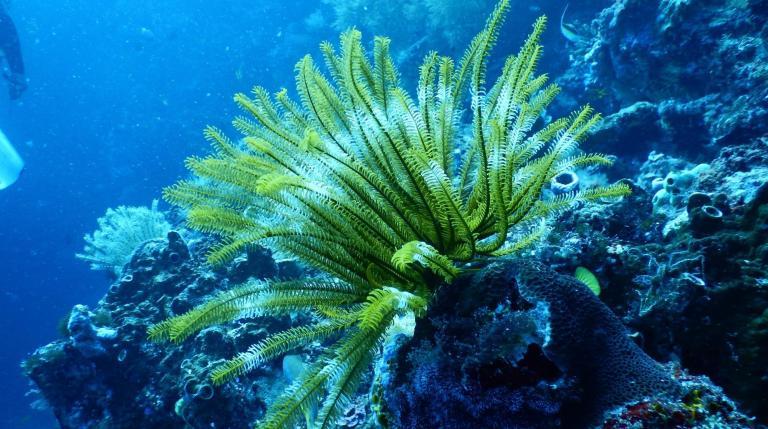With so much still unknown, ecosystem processes cannot be fully understood. This weakens models of marine ecosystems and their responses to pressures and diminishes our capacity to predict and take the best measures. Since biodiversity is declining at an unprecedented rate in Earth’s history, there is an urgent need to take conservation measures and develop holistic ecosystem-based management approaches, so that these ecosystems become resilient to environmental changes and are able to provide services for humankind and the planet’s life support system.
Objectives of the call:
• Increase understanding of the dynamics of marine biodiversity and ecosystems processes and functioning (including primary production, food webs and biogeochemical cycles) in Europe, in its outermost regions and overseas countries and territories, whose participation is encouraged, and in areas beyond national jurisdictions. Ensure that new modelling and scenario approaches integrate new and existing biodiversity data and knowledge from other EU, international and national projects and from long-term ecosystem and socio-ecological research infrastructure on species, biotopes and ecosystem processes. Genomics and taxonomic technologies for the inventory and fast identification of marine species from microbes, plankton and invertebrates to migratory species (including diadromous species), apex predators such as sharks and mammals, corals and other habitat building species, generating reference datasets from identified voucher specimens and novel methods to improve biodiversity monitoring and inventory.
• Increase understanding of how input from freshwater and estuarine systems influence coastal marine communities and their ecosystem functionality.
• Use acoustic and non-invasive monitoring as an integral component of any marine ecosystem exploration and assessment.
• Develop methods and indicators for regular and timely integrated assessments of the state / health of marine biodiversity and its key ecosystem services, in the EU and associated countries’ marine waters (Good Environmental Status) and in areas beyond national jurisdiction.
• Contribute to the Global Taxonomy Initiative of the Convention on Biological Diversity (CBD) and to free and open access to the Global Biodiversity Information Facility’s biodiversity data.
• Identify opportunities for cooperation with relevant projects, such as EUROPABON, which was awarded funding under the call ‘SC5-33-2020: Monitoring ecosystems through research, innovation and technology’, or the projects resulting from topics under the Heading ‘Understanding biodiversity decline’" in Destination ‘Biodiversity and ecosystem services’ as well as topics from Destination ‘Fair, healthy and environmentally-friendly food systems from primary production to consumption’ (aquaculture, fisheries), Destination ‘Circular economy and bioeconomy sectors’ (biotechnologies, microbiome), Destination ‘Land, ocean and water for climate action’ (Carbon cycle and natural processes) and Destination ‘Innovative governance, environmental observations and digital solutions in support of the Green Deal’ (environmental observation). Cooperation is also expected with the Biodiversity Partnership (HORIZON-CL6-2021-BIODIV-02-01) and other relevant Horizon Europe missions and partnerships. Proposals should outline a plan on how they intend to collaborate with other projects selected and with the initiatives mentioned, by e.g. participating in joint activities, workshops, common communication and dissemination activities, etc. Applicants should allocate the necessary budget to cover the plan. The plan’s relevant activities will be set out and carried out in close co-operation with the relevant Commission departments, ensuring coherence with related policy initiatives.
• Where relevant, create links, contributing to and using the information and data of the European Earth observation programme Copernicus, the Group on Earth Observations (GEO) and the Global Earth Observation System of Systems (GEOSS), the European Space Agency’s Earth Observation Programme and in particular the flagship actions on biodiversity and ocean health of the EC-ESA Joint Earth system science initiative, is expected.
• Improve professional skills and competences on marine taxonomy and system thinking.
• Engage in cooperation with the EC Knowledge Centre for Biodiversity and other relevant existing platforms and information sharing mechanisms.
• Contribute through education and training (school & ocean literacy, art and citizen science platforms) to a greater overall societal and public understanding of the link between biodiversity and the functioning of ecosystems.
Link with CMA Goals
Goal I: Healthy marine and coastal ecosystems
/ Priority 1: Ensure the protection and sustainability of the marine ecosystem

